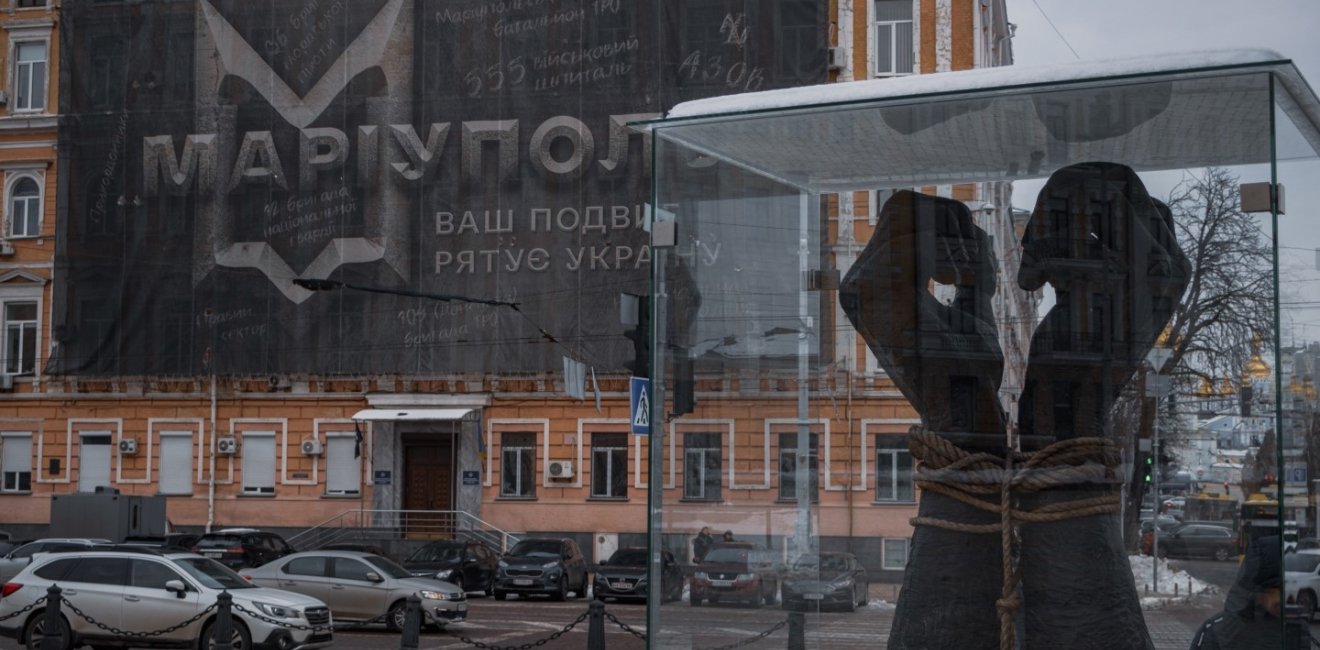
A blog of the Kennan Institute
Among many other challenges for international justice bodies and human rights defenders, Russia’s aggression against Ukraine has caused a massive illegal imprisonment of Ukrainian noncombatants. In the occupied territories, the Russian authorities have detained people who did not take part in hostilities and have deprived them of their freedom for extended periods of time. For example, Evgeny Guryanov, my neighbor in the town of Bucha, was detained in March 2022. An auto mechanic, Evgeniy had repaired cars for over twenty years, and his hands were always stained with machine oil. The Russian military suspected him of weapons dealing and took him to a pretrial detention center in Bryansk region. He’s been held there for almost two years.
High Numbers of Detained Civilians
According to research conducted by my colleagues at the Center for Civil Liberties, Kyiv, and myself, the Russian Federation has deprived about 7,000 civilian Ukrainians of their liberty since February 2022. Using a variety of sources, including the number of confirmations of detention received by relatives, we confirmed the presence of approximately 1,600 civilians in detention facilities. Most likely the other 5,400 Ukrainian civilians are in Russian prisons.
Many of these civilians were detained by the occupying forces back in February and March 2022 in the Kyiv, Sumy, Chernihiv, Kharkiv, and Kherson oblasts. These territories have long been liberated from Russian occupiers, but the detained civilians are still languishing in Russian prisons.
All these people are included in the Ukrainian Unified Register of Missing Persons under Special Circumstances. Today the registry includes information on approximately 14,000 civilians who have disappeared since February 2024. In addition to currently illegally detained Ukrainians, the list includes killed or released persons. All these data are approximate since the Russian authorities refuse to provide information on or access to civilian detainees.
The Status of Detained Civilians
Most of the detained civilians have not been officially accused of anything and no criminal cases have been lodged against them. In rare cases, the Russian military police may say they suspect a detainee of participating in the resistance. But statements of this sort are false: a period of only two years is allotted under the law to confirm such suspicions. Additionally, international humanitarian law stipulates that if there is any doubt as to whether a civilian is a combatant, civilian status must be assumed. The distinction between a prisoner of war (POW) and a civilian is crucial: a POW can be kept in captivity until the end of the war, while a civilian must be released immediately.
The Russian authorities have created a procedure for imprisoning Ukrainian civilians that is illegal even under Russian law. The deprivation of liberty order is signed by the head of the regional department of the Russian Federal Security Service (FSS). The same person extends the period of detention every three months.
Many heads of departments of the FSS understand that they are detaining Ukrainian civilians without a court decision. That is illegal under both international humanitarian law and Russian legislation. But knowing what the law is does not lead to implementation of the law. It’s likely that the Russian authorities will use the detained civilians to place additional pressure on Ukraine in the future.
The Russian authorities also violate the right of Ukrainian civilians to communicate with their relatives. The Geneva Conventions and their additional protocols provide detainees with the right to send letters to their relatives, and require the authorities to allow visits from ICRC representatives. The Russian Federation does not fulfill these obligations.
It is worth mentioning that the ICRC has special powers to protect civilian victims of military conflicts. However, these powers have not been fully implemented in the current war. For example, the ICRC has not yet received access to all places of forced detention of Ukrainian civilians in Russia. The ICRC officials say Russian authorities prevent them from visiting Ukrainians.
Where Are Ukrainian Civilians Detained?
Ukrainian noncombatant civilians are held in both official and secret prisons in the occupied territories and in Russia. Official places include pretrial detention centers, prisons, and correctional colonies. According to unpublished data from the Coordination Headquarters for Prisoners of War Affairs, there are fifty-seven such places.
We also know that civilians are illegally detained in unofficial prisons, such as basements or warehouses. For example, in the occupied town of Enerhodar, some employees of the nuclear power plant have been held in the basement of the police department building since July 2023. Persons held in such fashion are removed from the protection of any law. Officially, they do not exist, and the occupiers can do whatever they want.
The Torture of Civilians
The majority of the detained Ukrainian civilians are tortured and badly treated. This fact was recorded by the Office of the United Nations High Commissioner for Human Rights: more than 91 percent of civilians surveyed after their return home stated that they had been subjected to torture, ill treatment, and sexual violence. Many Ukrainian civilians, after being discharged, report insufficient nutrition and difficulties in obtaining medical care while imprisoned. Three civilians have died over the past two years as a result of poor-quality medical care. In addition, keeping people in captivity for an indefinite period of time causes moral suffering.
In violation of international humanitarian law, Ukrainian civilians are kept in closed cells and allowed only a single one-hour walk per day. Such conditions lead to deteriorating health.
Violations of the law against these people continue even after their release. On those rare occasions when Ukrainian civilians are released—and we know of only thirteen such cases—release occurs only in the occupied areas of Ukraine, and never in the Russian Federation. But even after such release, the FSS prevents these civilians from traveling outside their region. Such limitations are absolutely illegal and the individuals cannot be considered free, even though they have been released from detention.
What Can the West Do?
The Ukrainian government and human right defenders continue in their efforts to release all civilians from Russian detention. Targeted sanctions by Western governments can help hugely in this matter. Such sanctions should be aimed at the Russian officials serving in the FSS and the Federal Penitentiary Service. Together, Ukrainian efforts and Western sanctions “for unlawful deprivation of liberty” can help free Ukrainian civilians from illegal detention by Russian authorities.
The opinions expressed in this article are those solely of the author and do not reflect the views of the Kennan Institute
Author


Kennan Institute
The Kennan Institute is the premier US center for advanced research on Eurasia and the oldest and largest regional program at the Woodrow Wilson International Center for Scholars. The Kennan Institute is committed to improving American understanding of Russia, Ukraine, Central Asia, the South Caucasus, and the surrounding region through research and exchange. Read more

Explore More in Focus Ukraine
Browse Focus Ukraine
Talking to the Dead to Heal the Living

Ukrainian Issue in Polish Elections


